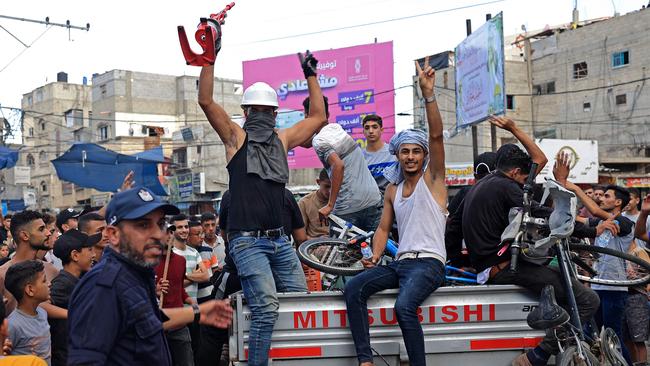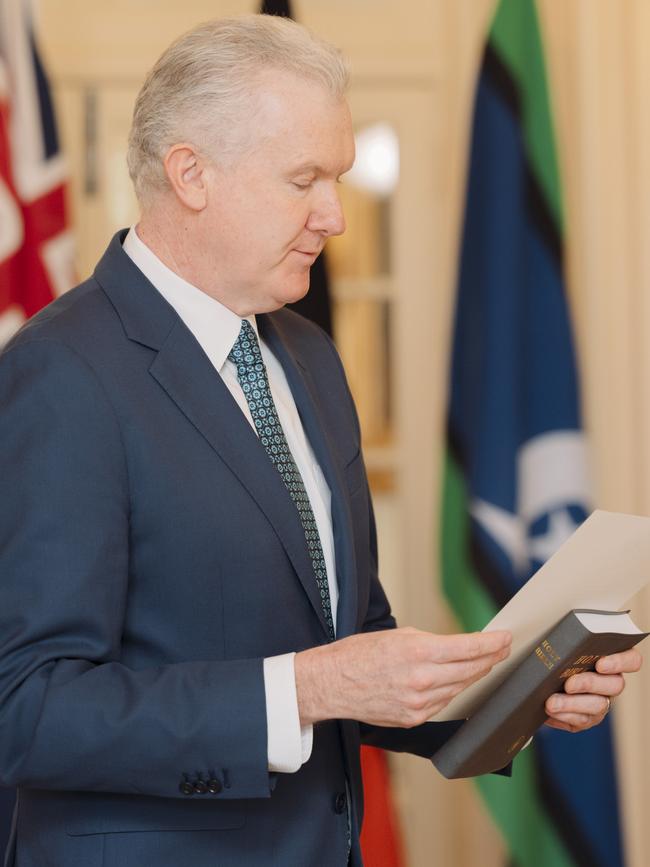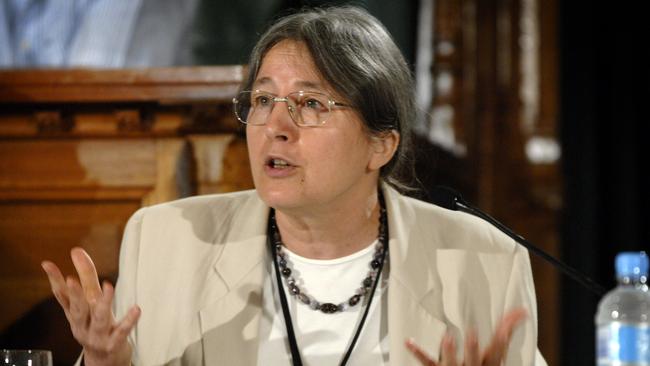Peta Credlin: Labor needs to shore up the nation’s safety, not votes
To hell with Australia’s long-term national interest, all that matters to Anthony Albanese is scraping back into office — and if that means importing more Islamists into the country, so be it, writes Peta Credlin.
Peta Credlin
Don't miss out on the headlines from Peta Credlin. Followed categories will be added to My News.
New Immigration Minister Tony Burke is on a mission. It’s to keep Labor seats with large Muslim populations by posing as the humanitarian saviour of Gaza via handing out permanent residency visas to likely Hamas supporters.
To hell with Australia’s long-term national interest and with migrants joining Team Australia.
All that matters to Burke and to Anthony Albanese is scraping back into office — and if that means importing more Islamists into the country, so be it.
Since the October 7 atrocity and Israel’s subsequent just war against Hamas, some 2000 Gaza residents have been given visitor visas to come to Australia, even though polls show that about 65 per cent of Gazans support Hamas and think that the October 7 rapes, killings and hostage taking was justified; and even though there’s no Australian consulate in the war zone to security check these people. More than a thousand have already arrived here.
But that’s not enough for the Muslim activists threatening to run candidates against Labor MPs in a leftist repeat of the Teals’ 2022 electoral devastation of once-safe Liberal seats. They want more.
Reports have emerged in recent days that “a new visa pathway” is to be created for Palestinians that will put them on permanent rather than temporary visas and give them access to work rights, Medicare and, ultimately, Australian citizenship.
Apparently, there have been “weeks of talks” about these new visas, with plans to grant permanency to the 1300 Palestinians already here despite the fact their initial visas were only meant to be for three months.

Labor sources are citing as precedent the Abbott government’s 2015 decision to admit 12,500 refugees from the then-Syrian war zone.
Back then, though, the government was explicit about preferencing “persecuted minorities”, people selected by Australian officials, not the UN, and not people who would likely bring to Australia the religious and ethnic hatreds of their homeland.
Of those who came then, about 90 per cent were Christian or Yazidi and properly security checked by our officials on the ground; something not happening with these arrivals from Gaza.
A more relevant precedent is the arrival of about 10,000 Lebanese Muslims here in the aftermath of the civil war starting in 1976.
A 2006 paper by the sociologist Katherine Betts noted that “the Lebanese civil war was grounded in a growing sense that Western models of government have failed and that the revival of an authentic Islam would provide a viable alternative”.
A sense of marginality in Australia, she said, “could lead to Islamist extremism or merely to poverty and the risk of criminal activity”.

According to media reports, Burke “put his hand up” for the politically fraught portfolio, presumably because he saw it as a chance to curry favour with his constituents, of whom 55 per cent were born overseas and 25 per cent are Muslim.
Given The Muslim Vote’s insistence that Gaza is the issue that matters most to Australian Muslims, bringing in more Gazans would certainly minimise the friction in Burke’s seat of Watson. And it would take the pressure off Labor in the 12 seats it currently holds where Muslims are more than 10 per cent of the electorate.
What might it do, though, to Australia’s long-term social harmony and national cohesion?
A 2018 University of South Australia study, The Challenge of Islamophobia and Social Distance, said that Australian Muslims “offer a particularly striking example of how a growing sub-population experiences disadvantage”. Australian Muslims are more likely to be underemployed and less represented in high status occupations.
But what the report attributed to their recent migrant status and to “Islamophobia” might also have something to do with Islamic culture too.

Then there’s the significant presence of recent immigrants in the “river to the sea” protests and the vicious anti-Semitism routinely preached in some mosques, especially in Western Sydney.
Pew Research from 2010 showed that 97 per cent of people in the Palestinian Territories have an unfavourable view of Jews.
A 2014 Anti-Defamation League survey showed that 74 per cent of Middle Eastern respondents expressed anti-Semitic attitudes by endorsing six or more of 11 anti-Semitic stereotypes such as “Jews control world banking”.
Are these attitudes what we want more of? Or are they just the price that Albanese thinks we have to pay, as a nation, for helping to secure the seats of cabinet ministers like Burke and Jason Clare?
When choosing between the party’s interest and the country’s interest, there’s no prizes for knowing what comes first for Labor.
Watch Peta on Credlin on Sky News, weeknights at 6pm.
Originally published as Peta Credlin: Labor needs to shore up the nation’s safety, not votes



